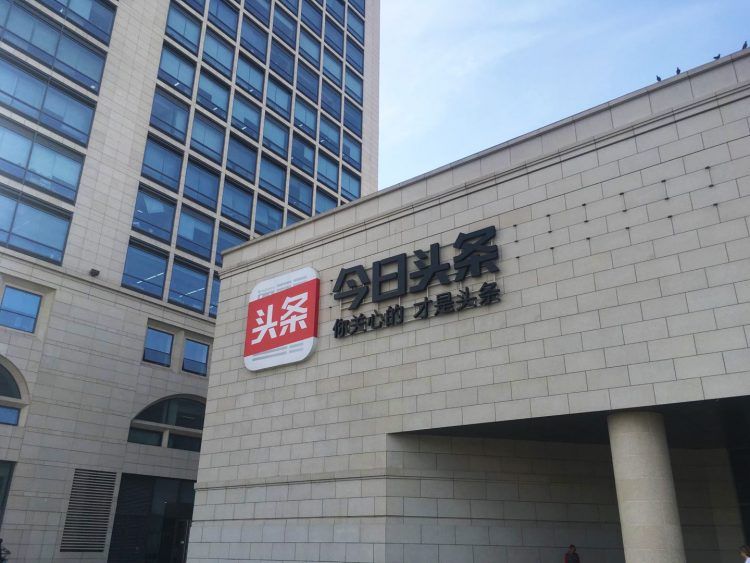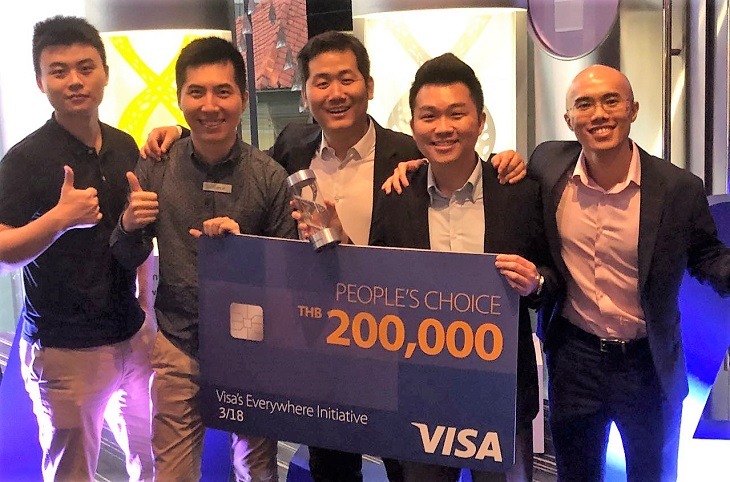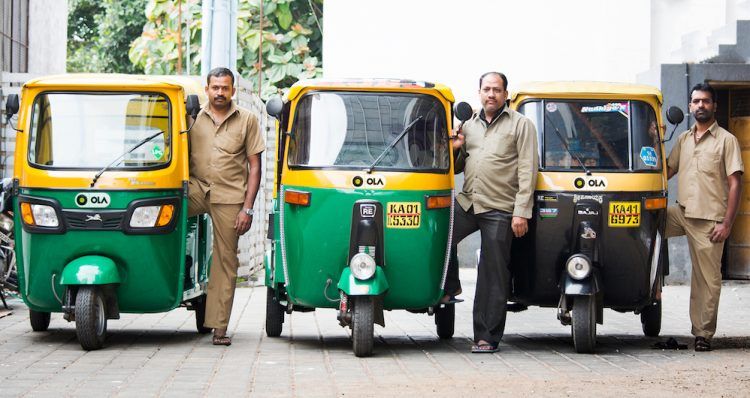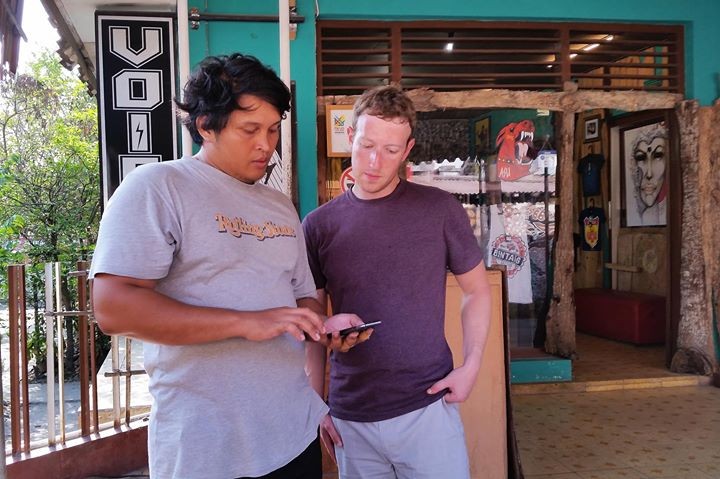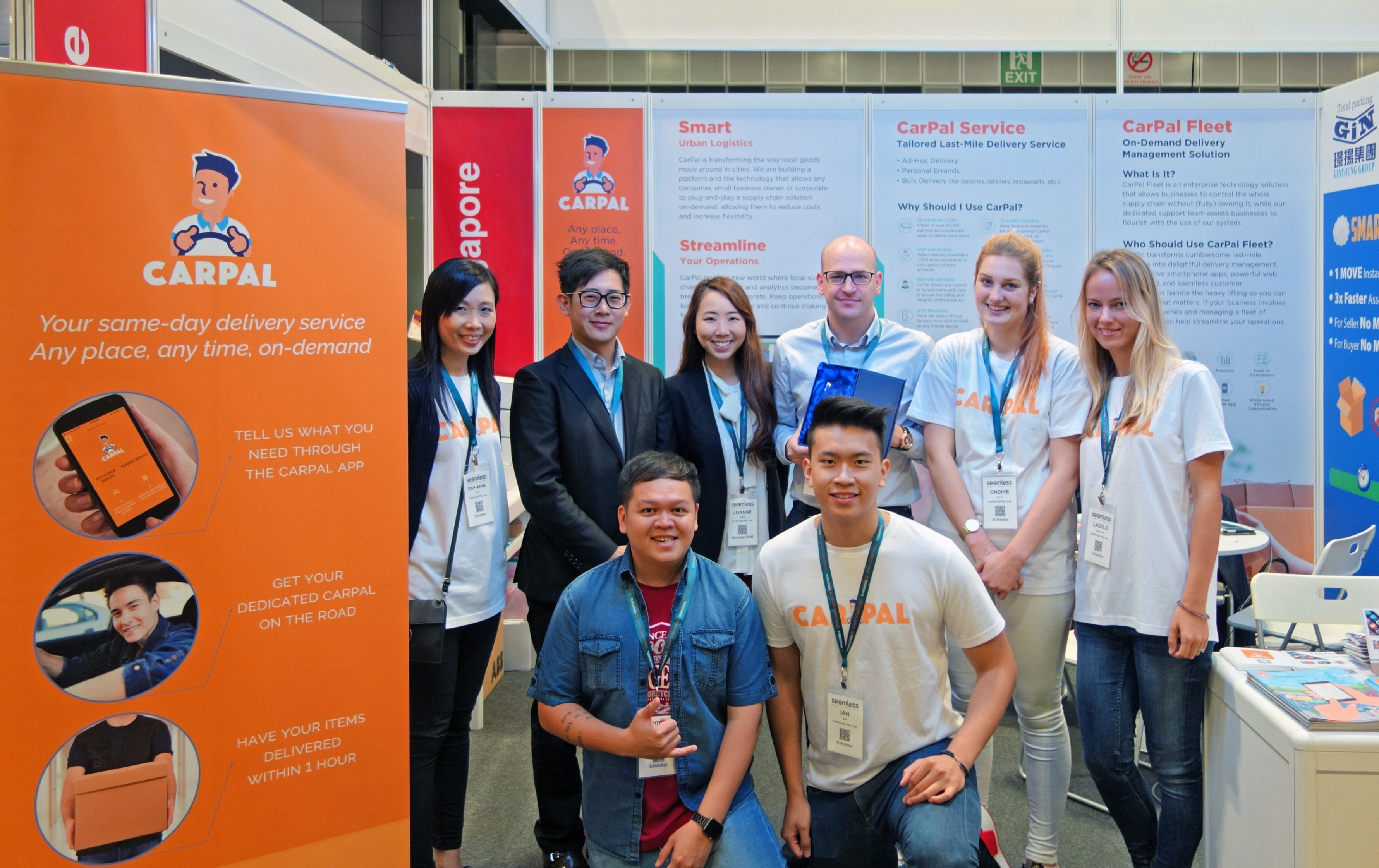
Photo credit: 123RF
Here is a list of startups in Asia that are raising money either from angel investors, venture capitalists, or via token sales. We have sorted them based on the strength of the team, traction, growth, idea, and investor interest.
Submit a startup here.
Want to reach out to a startup in this list? Use this form to indicate your interest in a specific startup and we will do the connection. We’ve made 73 connections so far.
You may also view a list of recently funded startups here.
SmartCommerce (Singapore)
Description: SmartCommerce is a AI driven digital marketing software. The technology synergize AI to create CRM that generates sales leads, QR code marketing and Omni channel e-commerce. The mission is to create a multi channel sales and marketing automation platform for SME.
Pitch: 100+ corporate customers. Profitable.
Stage: Series A and above
Pixibo (Singapore)
Description: Personal Shopper for Fashion delivering style, size and fit advice personalised for every shopper for every SKU. Web, In-App and In-Store.
Pitch: Revenue ARR $1m, Results: Significant uplift on CR. clear USPs over market players: custom front end, ease of integration ( zero dev. requirement from customers), channel agnostic inc. in-store deployment. Enormous TAM. Experienced team – founders ex-Google, ex-Getty Images.
Stage: Series A and above
NEW: Fasal (Bangalore)
Description: Fasal is an AI-powered IoT platform for precision agriculture. It delivers insights and analytics to farmers to grow more and better.
Pitch: Receive 6-8 request a day. 4 paying customers in 3 months, currently pre-booking for 30 days waiting period. Making distribution partners word wide at present.
Both founders belong to farming families and understand the market very well.
Stage: Seed
ITF Corporation (Singapore)
Description: Profitable Fintech group in Asia focusing on bringing financial
freedom to the masses. Goal to develop a) the World’s First Fintech Bank, b) Fintech Marketplace, c) DigitalTransformation Platform and d) Financial and Investment Education Community Platform.
Pitch: FY 2016/2017 Rev > USD$17.5 M;Net Profit USD$1.1M. Experienced management team > 50 yrs of listco experience;> 20 listco directorships. Renowned investor base -Dr. Lee George Lam, Chairman of Cyberport Hong Kong, Mr. James Beeland Rogers Jr., Co-Founder of Quantum Group of Funds.
Stage: Series A and above
NEW: Tutoroo (Singapore)
Description: Tutoroo connects people to nearby private language tutors.
Pitch: Tutoroo has been matching thousands of students to private language tutors worldwide. Here are some highlights:
- 400,000 SGD in revenue in our first year
- 30% Contribution Margin
- Thousands of happy customers! ==> www.facebook.com/TUTOROO
Stage: Seed
NEW: Velox Networks Pte Ltd (Singapore)
Description: Licensed by the Singapore IMDA to provide telecommunications service, Velox is Singapore’s only native cloud based PBX supplier offering business grade high quality VoIP communications with the full functionality of a high end PBX with zero capital investment
Pitch: Launched April 2017 and profitable December 2017
SaaS business model with 24 month contract
Incredibly low burn rate
Zero customer churn
Low customer acquisition costs
margins in excess of 50%
50+ corporate customers and 1,000 licences deployed in Singapore and globally.
Stage: Series A and above
NEW: SmartBite (Kuala Lumpur)
Description: Eliminating unpredictability and inefficiencies typical in on-demand food delivery services, SmartBite is delighting office workers and restaurants all at the same time.
Pitch: -Over USD 250 K in total sales in 2017
-Experienced team in e-commerce, F&B, technology and data analysis
-Proprietary technology and trademarks
-International investors and partners
Stage: Series A and above
NEW: Stranger Sports (Singapore)
Description: The leading soccer platform in SEA, where people can simply book for a game and turn up to play. Currently in Singapore and Malaysia, we saw 60,000 players engaged in soccer via our platform in 2017.
Pitch: We will disrupt the US$700 billion sports industry by providing the most personalised solutions for all sporting needs. We can do that as we can access in-depth data of our users’ sporting nature when they engage in a sport via our platform. Such data never existed before.
Stage: Seed
Vaultedge Software (Bangalore)
Description: We are a Legal Technology startup. We help Law firms and BPO/Legal Process Outsourcing firms save upto 80% of legal contract review and abstraction time by automating contract reviews using artificial intelligence software. Some of the top Law firms & LPOs are using our software.
Pitch: We have a founding team from IIM Ahmedabad and Stanford with extensive experience, several patents. Founders have prior startup experience. We have paying customers like Accenture. And we are innovating in the multi-billion dollar legal technology space.
Stage: Seed
Latize (Singapore)
Description: Latize’s semantics based engine powers the adoption of AI among organizations in APAC. It is an end-to-end enterprise solution that enables them to harness the power of machine learning in decision making, enabling them to make better, faster and more precise business decisions.
Pitch: Our machine learning platform offers peerless accuracy in insights drawn from complex data sources, allows for integration with modern ecosystems and enables deployment in 3 weeks. Headquartered in Singapore, it has been validated by enterprises in BFSI, Government and Education.
Stage: Series A and above
Innaway (Vietnam)
Description: Southeast Asia’s Top Curated Hotel & Local Culture Ambassador
Pitch: Expedia’s technology partner in SEA & Greater China helping their 5000 agent upselling hotel estimated $8.4M/year in GMV. Team with domain expertise in OTA management and with Lazada, Intel, Netflix; advised by Dominic Cameron (former CTO of lastminute.com).
Stage: Seed
Airfrov (Singapore)
Description: A marketplace to help you get products easily via personal shoppers or merchants from overseas.
Pitch: We are the strongest in our vertical of C2C Personal shopper in SouthEastAsia, have more than 50K MAU and is serving both Singapore and Indonesia customers right now.
Stage: Series A and above
The Storefront (Hong Kong)
Description: Storefront, the “Airbnb of Retail is the world’s leading online marketplace for renting short term retail space. We aim to make 94% of offline retail accessible to any business.
Pitch: Offline channels drive 94% of retail sales and allow brands to connect with their customers in a personal way. We are building the future of retail by making it more engaging, more transparent and more productive. Our vision is to make retail globally accessible.
Stage: Series A and above
NEW: Stringee – Communication APIs for Voice/Video/SMS (Hanoi)
Description: Stringee is a communication platform which provides APIs for developers and businesses to add SMS, voice, video calling to apps without having to build or maintain back-end infrastructure.
So far we are trusted by large companies and have > 10M active users.
Pitch: We’re a Twilio alternative in Southeast Asia. Our pitch deck: https://drive.google.com/file/d/1jP3aFX0KrLH7upQbj0PyxxBH4kbK4dq8/view?usp=sharing
Stage: Seed
FitGear (Kuala Lumpur)
Description: A fast-growing lifestyle consumer brand with the vision of helping 100 million people to live better at lower cost.
Pitch: We only began with RM3000 (US$700) startup capital but has successfully grown to make RM2.4mil (US$600K) in revenue within 10 months. We’re profitable from the first month and target RM8mil (US$2mil) in this year!
Stage: Series A and above
Dishq (Bangalore)
Description: Our unique technology leverages food science and rich dish data to understand and predict people’s taste preferences. We’re helping the industry with key challenges including recommendations & personalisation, menu & product development and insights & trends.
Pitch: Both founders have previously worked at successful food tech companies. We power 1m+ recommendations every month across our customers, with booked pipeline for 50m+ recommendations. We hold 26 attributes per dish, that’s double compared to leading recipe sites.
Stage: Seed
MocDoc (India)
Description: MocDoc provides SaaS based integrated full stack solution to healthcare
Pitch: With more than 350 clients across India, MocDoc is inching towards profitability. Managing more than 3M patients, more than 6,000 beds and more than 3M pathological test results, many of them integrated directly to lab machines through our solution, MocDoc is disrupting healthIT.
Stage: Series A and above
NEW: Dealtoday O2O E-commerce platform (Hanoi, Vietnam)
Description: Dealtoday is the leading E-promotion, E-loyalty and E-marketing platform in Vietnam, connecting thousands of Merchants and millions customer via O2O platform.
Pitch: Dealtoday is the most innovative platform and smart business model in E-commerce sector in Vietnam, it is growing fast with large network of merchant, distribution channel and profitable business result.
Stage: Series A and above
NEW: Ziptango (Jakarta)
Description: Ziptango is a fashion marketplace for designer fashion such as Louis Vuitton, Chanel, Prada. We help fashionistas sell their bags easily and maximize their sell value. Shoppers feel confident buying with our authenticity guarantee. We offer affordable payment installment.
Pitch: Indonesia luxury market is a $1 billion market with a profitable business model. We have 5000+ users across iOS, Android, and web apps. Over 5000+ products. 65% of all orders are from repeat buyers. Our partners includes Go-Jek, Kredit Plus, and others.
Stage: Seed
NEW: VirtualSpaces (Cleveland / Bangalore)
Description: Mobile VR for yet-to-be-built properties in Real Estate
Pitch: AAA console visual quality renders on Mobile VR
Stage: Seed
Bountie (Singapore)
Description: Bountie is the first platform for gamers in Asia to make a living while playing their favourite game. Using the latest technology from Blockchain and Cryptocurrency, Bountie reduces the chance of fraud, high transaction fees and introduce a new experience in eSports & gaming
Pitch: Founded only 7 months ago, we grew from 4 to now 65 strong in our team. We have 30,000 gamers sign up across Asia. We have strong alliance with several gaming brands and partners. We are the first ever platform in Asia that allows gamer to monetise from their skill set.
Stage: Token sale/ICO
SmartPeep (Singapore)
Description: We are a Med-Tech startup that brings AI together with human care to reduce falls. We develop an AI-camera-based patient monitoring system to monitor patients automatically and notify caregivers when emergent situations occurs.
Pitch: We have the right team to develop the product and business: 3 AI researchers, 1 software developer, 1 product, sales and marketing person, and 1 hardware specialist. Enormous video data from hospitals and elderly homes enables our AI to be almost 100% accurate in a few months.
Stage: Seed
InfraDigital Nusantara (Jakarta)
Description: Our platform allows institutions like schools, universities, parking lots and real-estate to do away with cash collections.
We connect them to modern payments companies and banks so they can accept payments online, provide financing and finally make cashflow transparent.
Pitch: Founded by two long-term payments experts, in less than 6 months we have signed up ~70 institutions, connecting them with the largest payments companies and banks in Indonesia.
Stage: Seed
MamaHelpers Technologies (Hong Kong)
Description: MamaHelpers is the largest and fastest growing network in the world gathering foreign domestic helpers, employers and agencies. We opt for building up trust and transparency, and disrupt the helper employment industry globally.
Pitch: MamaHelpers hit 150K+ registered helpers, 15k+ active daily users and thousands of matches within 4 months of launch. We are currently serving Hong Kong, Singapore and Middle East, and preparing to serve also the China market which aims to open in 2018Q2.
Stage: Series A and above
Cudy (Singapore)
Description: A online marketplace for online tuition. We match students and educators on a platform and provide them a virtual environment to have synchronous lessons, nurturing the benefits of collaborative classroom learning. Our mission is make quality education accessible to all.
Pitch: High growth market in South-East Asia. Over-subscribed early-interest from tutors in December and receiving healthy growth in number of sign ups before beta is released. First fully integrated online tuition hub with strong in-house tech team.
Stage: Seed
Zyllem (Singapore)
Description: We have build a SaaS model deployed software in the cloud to orchestrate multi-segment logistics networks. It allows enterprises to build and manage their entire distribution network—that includes partnerships and their own assets—in one platform.
Pitch: We have gained great traction with customers in Singapore, no product is as flexible and configurable as ours. Companies want to manage mixed networks, thats a clear trend in the industry. We founders have build and sold enterprise software in SAP
Stage: Series A and above
LetsMath (Bangalore, India)
Description: LetsMath is an affordable, after-school Math learning app for those who access internet primarily on mobile. It offers on-demand chat based doubt-help coupled with Duolingo-like interactive lessons and a QuizUp-like practice platform that learns from the student data it collects.
Pitch: We are building an AI based personal Math companion for every student. The founding team is from IITD, IE Spain, Lehman/Nomura & NITK, IIMC, ITC, Flipkart. The venture is angel-funded and has early revenue & traction (80k installs, Top 5 emerging edu apps at AWS Mobility Awards)
Stage: Seed
HelloBeauty (Jakarta)
Description: HelloBeauty is the first and leading Beauty Services marketplace & community in Indonesia. We help women to discover and book beauty services easily. On the other side, we help beauty artists to manage and grow their beauty businesses online.
Pitch: A profitable company and now have more than 1,800 beauty artist members across Indonesia and keep growing and monetizing quite well. HelloBeauty has a very strong beauty artists community. Both founders are ex-Rocket Internet and helped by great advisors from related industries.
Stage: Seed
Sacred Capital (Singapore)
Description: Often dubbed as the ‘Robo-advisor’ of the decentralised economy, Sacred Capital is radically shifting how we will engage with wealth in a post-blockchain world.
Pitch: The team is spread across California, SE Asia and India and has addressed and worked with 3000 individuals across the world over the last 6 months. The platform tracks 1200 tokens that are currently live while the network will expand to 150 crypto-analysts in time for the ICO.
Stage: Seed
Transporters.io (Bangkok)
Description: SaaS solution and global booking network for group ground travel industry eg. coach/bus hire
Pitch: We have solid traction (1000+ global signups) on SaaS side which gives us an easy way to scale inventory for our new global booking network. Our double sided market approach gives us a unique edge in achieving this at scale. Group transport is $BN++ globally, ripe for disruption.
Stage: Seed
AppPay (Kuala Lumpur)
Description: We are Mobile Commerce enabler for Brick-and-Mortar (F&B and Retails) business, promoting customer self-services, payment and Brand loyalty.
Pitch: Top 10 Fast Growing Fintech Company. Though we are still raising seed fund, but already have 4 paid Brand customers, integrated with some major POS Systems and Payment Companies. USP is focus in F&B and retails and accessible to organisation with major Big Brands in town.
Stage: Seed
NayaGaadi (India)
Description: NayaGaadi.com is Rural India’s first Multi Utility Online Marketplace for all the Brand New Vehicles. Launchpad for Electric Vehicles and Mobility Solutions.
Pitch: We have sold vehicles worth US$1.8 million, have tie-ups with 100+ dealers, 15 OEMs/manufacturers and banks, insurance companies. Launched one first crossover electric bike. Supporting One city (ie Bangalore) planning to support 5 Tier 1 cities and cover 500 villages (rural and semi rural).
Stage: Seed
Rock Human Devices (Singapore)
Description: The world’s most stylish medical devices, starting with hearing aids.
Pitch: 15 trial users to date, some have been brought to tears by being able to hear properly for the first time in their lives. Working with healthcare and leaders in audiology to steer the device development and learn more about hearing aid user behaviour.
Stage: Series A and above
GrabJobs (Singapore)
Description: We are a Technology company developing innovative and efficient Recruitment Solutions. Our main products are a mobile-first Job App focused on entry to mid-level jobs, and a Job Interview Chat Bot.
Pitch:
1) Technology leaders within our space in South East Asia. We are the only Interview Chat Bot powered Jobs Platform
2) Only ones with a real regional footprint, operating in SG, PH, TH and MM
3) Cofounders are entrepreneurs with Technology, Recruitment and Sales experience
Stage: Series A and above
Aversafe (Ho Chi Minh City)
Description: Aversafe is a blockchain-backed credential issuance and verification network. Aversafe’s verifiable digital credentials protect individuals, employers and certificate issuers from credential fraud.
Pitch: Experienced team with previous exits under their belt, working together for more than 8 years. Working with Universities, Ministries of Education and certificate issuers across the globe.
Stage: Seed
Doogether (Jakarta)
Description: DOOgether is the leading fitness network in Indonesia, provide access and online reservation for sport enthusiast to more than 100 venues and 3000+ classes available per-month. Everything is done without membership program, anyone can come and pay as they go (ala carte).
Pitch: We have recurring revenue every month from 30% commission every transaction with retention around 40% and provide Fremium SaaS. Our previous angel investor is Erick Thohir President of Inter Milan.
Stage: Seed
Leap Talent (Jakarta, Indonesia)
Description: “Leap Talent is a job matching platform for managers in Indonesia.
We help both corporate recruiters and managerial people(earn over 10M Rp/month) since they struggle to find suitable talent or suitable positions by current services.(such as Jobstreet, jobsdb, headhunters)”
Pitch:. We achieved over 10,000 candidates register in 4 months and already got several clients. Job matching is a monopoly now but the market is huge estimated over $200M only in Indonesia. We found a way to solve the current issues in the market and working on this.
Stage: Seed
Sportify App (Kuala Lumpur)
Description: A one stop platform for sport lover to discover sport games nearby and book sport venue.
Pitch:. We’re currently the largest sport booking platform in Malaysia.
Stage: Seed
HungryNaki (Dhaka, Bangladesh)
Description: We are online food delivery company since 2013. We are having dedicated fleet to cater the demand.
Pitch: We have a solid profitable model, bootstrapped till date, having strong market share. USP towards customer is more human interaction & data based decision making culture. Efficient fleet management system & Integration with Restaurant POS system made us unique.
Stage: Series A and above
SAM Property (Johor Bahru)
Description: SAM is a cloud property sales & marketing platform specially developed for property developers. It’s a 1-stop solution for customer to manage the entire sales process from Lead Management, CRM, Sales Management, Mortgage & Agreement Management to Feasibility Study and more.
Pitch: We are the first enterprise level property sales & marketing platform for property developers in south east Asia. In just 2 years, we managed to help our customers managed more than USD 4 billion worth of property sales on SAM platform.
Stage: Series A and above
SeeHow (Bangalore)
Description: IoT company that builds affordable smart sports devices to help sports enthusiasts at all levels train and play smarter. Think FitBit for sports! Our first product is a smart cricket ball which provides analytics solutions for training, scouting and fan engagement.
Pitch: Cricket is the world’s 2nd most popular sport, and our smart cricket ball is its 1st consumer hardware product. Traction from international cricket stars. Team: ex-A*STAR, MIT. Growth potential: no sport has a smart ball in extensive use.
Stage: Seed
DRVR (Bangkok)
Description: DRVR enables Connected and Autonomous vehicles for Asia
Pitch: DRVR has an experienced team and we have a huge sales pipeline. We have customers in 6 countries and a major presence in Myanmar and Thailand
Stage: Series A and above
SubHome Hospitality (Kuala Lumpur)
Description: Fastest Growing Airbnb Operator in Malaysia.
Pitch: We are on track to grow to 3,000 rooms in next 2 years, we bring the hotel experience to AirBnb industry, we are now 30 team strong and rapidly growing. We are already hitting a monthly turnover of over RM400k per month.
Stage: Seed
Kravve (Kuala Lumpur)
Description: Kravve a Peer-2-Peer online marketplace for homemade consumable goods (not food delivery) and an food selling management service which helps sellers to manage their online sales more efficiently.
Pitch: Kravve’s sellers spent 80-90% lesser time and effort in managing their sales.
Our company has a month-to-month growth of 115%. Currently we have 200+ sellers, and 400+ products making us the largest homemade food market in Malaysia.
Stage: Seed
InteliTix Solutions Private Limited (Chennai, India)
Description: An HR tech solutions company offering innovative solutions like gamified assessments, micro-learning web app, blockchain based background verification system and 360 degree systems
Pitch: Founded by professionals with over 35+ years of combined experience in the talent assessments, HR Tech and consulting space. Have started working with some top notch customers and seeing good traction.
Stage: Seed
Carblicity (Singapore)
Description: We believe that Out of Home Advertising should be accessible by EVERYONE. Carblicity is a crowdsourced private car advertising platform that connects advertisers to drivers of privately owned vehicles for the purpose of transit advertising, thus disrupting the media landscape.
Pitch: Since 2017, we have launched 4,408 car months worth of media usage for reputable Brands such as Pepsi, AIG and Carousell. Signed agreements with Grab and GogoVan, gives us access to 40,000 over drivers and 7,000 vans respectively to participate in our campaigns.
Stage: Seed
Arto (Singapore)
Description: Marketplace matching galleries with consumer. Matching is done via our AI based recommendation. We create art profiles of every user, profile is created by showing artworks which are swiped left or right to like or dislike. The more the user swipes the better the recommendations.
Pitch: Art market is traditional, galleries are willing to pay for marketplaces. In 2 months we have 8 paying galleries. In 9 months we reached 25k users, 35k artworks and 7000 artists. The online art sales is growing 10% per year and is forecasted to reach USD +10B in 2020
Stage: Seed
Big Tiny Pte Ltd (Singapore)
Description: Big Tiny is the first company in Singapore to integrate the concept of tiny houses with eco-tourism. Tiny houses are part of an international move towards simplifying lives by reducing the size, and therefore the resource consumption, of homes without sacrificing quality of life.
Pitch: Potential and upsides of our business model is limitless. Our tiny house business concept can be applied via sale and leaseback schemes which we are currently doing, domestic production that caters to the local market, resorts building and management, disaster relief, etc
Stage: Series A and above
Homade (Jakarta)
Description: Homade is new innovation logistic business in food industry, we empowering people to cook at home by providing good materials, their dishes will bring to our food assembly to ensure the quality of food meet our standard then we assembly the food with high standard of packaging
Pitch: We do not need to build our own kitchen and chef.
Making standards for home industry
Low capital investment to open food assembly site
Traction since Aug. 1st 2017
USD$ 25,500 Revenue
17000 Food Delivered
4 Food assembly in Jakarta, Bekasi, Pekalongan and Padang
Stage: Seed
Fatberry.com(Kuala Lumpur)
Description: Fatberry is an online insurance marketplace focusing in aggregating the general insurance products and empower customers to make their purchase on the spot as fast as 2 minutes. Currently they have 9 insurers on the platform, and they just launch their website on December 2017.
Pitch: Have accumulated more than 6k quotation request since one month launch, friendly chatbot interface, Direct API connection with insurers, very lean team size and low burning rate, have partnership with 9 insurers, have partnership with multiple affiliate partners to tackle offline
Stage: Seed
Symmetry (Tokyo, Japan)
Description: Symmetry is a software company that builds communication tools for professionals in AEC, design, and education that utilizes VR (virtual reality) to improve consensus formation between the professional and the client.
Pitch: Utilising VR allows professionals to communicate their designs at 1:1 scale, effectively improving communication and consensus formation. Symmetry has already amassed over 6000 users in more than 90 countries with an average session time of more than 4 hours.
Stage:Series A and above
Cooking Club Co. (Kuala Lumpur, Malaysia)
Description: Cooking Club Co. produces and publishes highly engaging food related entertainment content via the Internet. Cooking Club Co. serves as a digital advertising platform that generates revenue from selling viewership to advertisers.
Pitch: “In just 12 months, our advertising platforms have gained over 17,000 followers, generated over 1 million viewership and reached over 4.7 million people. We have successfully generated revenue from early stage advertisers.
We are like BuzzFeed Tasty, but for Asians.”
Stage: Seed
9cv9 Pte. Ltd. (Ho Chi Minh City)
Description: 9cv9 is a Career Startup that improves our users’ skillsets and matches them to jobs and internships, with a particular focus on the tech industry.
Pitch: Since inception, we’ve earned revenue of USD 16k on bootstrapped funds (showing tenacity), amassed a strong fan base of ~80k users on our media platforms (showing popularity), and helped our clients source for good quality tech talents in Vietnam (showing demand).
Stage: Seed
Leet Entertainment Group Limited HK (Kuala Lumpur)
Description: Matchroom is striving to deliver an unique social gaming platform with the capacity to become a centralized gaming hub where all stakeholders may congregate, engage, and interact; resolving modern gamers’ dilemmas through its platform features supported by blockchain technology.
Pitch: We’re an angel invested outfit already set to launch during April, 2018;
Our platform is designed as a comprehensive ecosystem supported by blockchain that drives organic circulation of our crypto;
We’re team of industry veterans with the average over 10 years experience.
Stage: Token sale/ICO
Jala (Yogyakarta, Indonesia)
Description: “Jala helps shrimp farmer manage their water quality to boost the yield and create the sustainable business.
Using multi-sensor device that paired with the software platform, farmers can monitor and adjust their treatments and techniques to ensure a healthy and bountiful pond.”
Pitch: “Our current prototypes are running in 120 ponds around Java Island, Indonesia. 50% of them are paying customers. Increase shrimp production efficiency up to 25% and save more than 400K USD of harvest value.
The founder has 16 years experience in the shrimp industry.”
Stage: Seed
ChemoPower Technology Pte Ltd (Singapore)
Description: Chemopower wants to modernise the Traditional Medicines through evidence-based science. Our vision is to build a Traditional Medicine Information-Technology Center, which is globally recognised, at the forefront for the discovery of new medicinal compound.
Pitch: We are the only one in the world that can detect medicinal compounds that are currently undetectable. We also have the ability to automate the entire analysis process which in turn allow us to discover these compounds rapidly. We already have collaborations with NUS, A*Star and a few traditional medicine companies.
Stage: Series A and above
Vayafi by Social Light Inc (San Juan, Philippines)
Description: We give free internet connectivity to the public by giving stakeholders a means to get an ROI from free WiFi. We do so via WiFi Advertising, Analytics, and Marketing services which in return gives stakeholders advertising revenues, data for business, and marketing sales ROI.
Pitch: “- Early pioneers of WiFi Hotspot technology
– The integration of Adtech into WIFi Technology
– 800 access points deployed across APAC and signed a deal for another 10,000 for 2018
– Experienced Founders with 10 years experience each
– Previously acquired”
Stage: Seed
Fishcake (Singapore)
Description: Fishcake is the Uber of customer service agents. It allows companies to rely on a large group of freelance CS agents ready to take calls. Agents can work on their free time and service customers remotely from their own device.
Pitch: Fishcake is a unique offering in the CS industry, which is ready for disruption. The team is highly experienced in both the CS field, engineering, and execution.
Stage: Seed
Stocky (Gurgaon)
Description: Stocky is World’s First Hyperlocal B2B Marketplace App for Retailers & Wholesalers to trade Surplus Inventory. It is an ideal app for Retailers, Wholesalers,Importers, Exporters, Traders to sell their un-sold, excess & underperforming stock directly to other businesses near them.
Pitch: Stocky has First mover advantage, in built network effect, globally scalable from yr 1 and has the potential to be a billion dollar company in record time. Founder with 14+ yrs digital exp, sold companies before, strong experience with marketplace startups.
Stage: Seed
Datarama Pte Ltd (Singapore)
Description: Datarama is a next-generation due diligence firm using a combination of AI, machine learning and data visualisation techniques to make risk and compliance checks cheaper, faster and more comprehensive.
Pitch: The solution has benefited clients ranging from global investment companies to private equity clients and hedge funds, with a niche product offering of improving transparency in emerging markets.
Stage: Series A and above
HyperLab (Kuala Lumpur)
Description: We help enterprise scale CX efficiently by augmenting human tasks with Conversational AI and Intelligent Assistants.
Pitch: Traction with regional banks and telcos for customer support, sales and employee engagement, effective language understanding for English, Bahasa Malaysia, Manglish, Singlish and Chinese, robust platform for cloud or on-premise deployment.
Stage: Series A and above
Winnerzz (DKI Jakarta)
Description: A platform to help Event Organizers & Participants to submit, register and doing payment for attending a Competition event. It’s a Marketplace for Competition event. So we can say, it’s like an Eventbrite, but WINNERZZ only focus on Competition event only.
Pitch: Our team have an experience for doing & handling Competitions in Indonesia, and have a lot of Event Organizer partner. We believe if many people have an access to perform & show their talent, it will make our world to be a better place.
Stage: Seed
Oxide (Jakarta)
Description: Oxide is a SaaS aiming to solve organizations problems on managing data including: 1. Data Integration (Oxide has Enterprise connection to major database and Query Integrator to pass through query to different database technology at once), 2. Data Cleansing and Analytics Enabler.
Pitch: We are set to challenge big names in data management (ETL, data platform, and the like) with several key technology advantage and competitive price point and licensing scheme.
Stage: Seed
Vista Rooms (Mumbai, India)
Description: Vista Rooms is professionally-manages vacation rental homes in India and Sri Lanka. Our idea is to make it completely hassle-free for our owners to let out their homes for short stays whereas guests receive a hotel-like experience in the comfort and privacy of a home.
Pitch: Vista Rooms is building the “Marriott for Homes” of South Asia. We plan to grow from 100 to 200 properties this year with a run rate of USD 1mn. 50% of our current bookings are direct with over 25% of our guests referring or repeating a stay and a customer review score of 8.5/10
Stage: Series A and above
Love Panda (Singapore)
Description: A Faster and Better way to Learn Chinese
Pitch: Strong team with co-founders who have years of experience in education and passion in language education. Our students are able to learn good Mandarin with authentic pronunciation from our China teachers from the comfort of their home.
Stage: Seed
SellUp (Singapore)
Description: We are an online reCommerce company that provides monetary value for used electronic devices in the most convenience way. We allow a transparent and instant evaluation of used mobile device online and provides a safe and secure transaction to users.
Pitch: Potential market (high demand) with huge opportunity in online space (lack of competitor).
Stage: Seed
Affluency (Singapore)
Description: Affluency is the premier Affluent lifestyle E-tailer in Asia. Our first vertical of curated luxury design & craft, represented through an omni-channel architecture, addresses a $5.4B market in APAC.
Pitch: USD 600K funded. 3 co-founders, all serial entrepreneurs. Team industry insiders network spanning 20 years. Unique Value proposition in Asia, harnessing latest technologies with AR, AI and blockchain rollout in the near future. Products library, AR/VR ready.
Stage: Seed
Park N Parcel (Singapore)
Description: Park N Parcel aims to minimise the frustration of missed deliveries by providing online shoppers an alternative way to receive their parcels.
Pitch: A first in Singapore, you can now have your online shopping delivered to registered residential and commercial Parkers within a 1km radius of your home to be collected at your convenience.
Stage: Seed
Morpheus Labs (Singapore)
Description: Real users build for users. We are a team of experienced and cross-functional talents with experience in artificial intelligence, blockchain, mobile application, cybersecurity and IoT across Europe and Asia. Backed by a group seasoned advisory team.
Pitch: One of few blockchain infrastructure startups that bridges between Blockchain protocols and users. We are a powerful & inclusive full stack of Blockchain Platform as a Service for rapid prototyping at fractional cost and time. Having strong traction till date
Stage: Token Sale/ICO
Wallezz (Jakarta)
Description: Cash transaction more than 85% & more than 65% unbank was the berrier to accelerate epayment in indonesia.so we created wallezz to serve many transaction model. we will be the front end solution so people could do transaction whatever their banks or institution
Pitch: We have solution that local government very interest to working with us. now we have 5 local government like makassar, banjarmasin, banggai, muaibanyuasin, and gowa. still in discussion with more than 10 others to deal with to digitize their 13 local tax &more than 30 retribution
Stage: Seed
Cheers Global Wallets (Singapore)
Description: Cheers Global Wallets is the first financially-regulated payment platform that enables app developers to natively embed their own custom-branded wallets within their products. The result: connecting global app users financially into one payment ecosystem.
Pitch: Cheers supports payments that are instant, on/off ramp in >180 countries, down to micro-amounts ($0.01), and serves the unbanked. We are the only regulated, non-crypto based platform able to provide this to developers and their customers today with fiat currencies.
Stage: Seed
Jetspree (Kuala Lumpur)
Description: Jetspree is a cross-border shopping platform that helps you get items and products you want from abroad by way of international travellers.
Pitch: Jetspree has as well seasoned team that has made significant traction in the past few months and is looking for further expansion. We are confident in the business and model and hard value we create with our approach in the cross-border space.
Stage: Seed
Automo (Singapore)
Description: Enabling short-term automobile rental and/or driver services to everyone easily and safely with direct booking from local providers with transparency. Instead of just a basic sedans and luxury cars, customers can book any thing to even commercial vehicles such as lorry and vans.
Pitch: No major regional player in the SEA market, and the fastest growth in partner vendors joining Automo as well as a clear development plan with Indonesia being the next market. We also have a viable business model in place right from the beginning.
Stage: Seed
GetLinks (Bangkok)
Description: Asia’s leading tech talent network, a self-service marketplace matching top tech talents to the most innovative companies in the region.
Pitch: We want to empower tech talents and embolden them to be part of the companies that’ll the world. Shifting the power away from traditional recruitment agencies, and back into the hands of the millennial jobseeker.
Stage: Series A and above
Straits Interactive Pte Ltd (Singapore)
Description: We offer a powerful customisable regtech platfrom that lets organisations operationalise compliance with data protection laws & any kind of governance, risk mgmt & compliance with deep expertise in data privacy. We are creating a powerful eco system to create recurring revenues.
Pitch: Data Protection will be big in this region with new data privacy laws in ASEAN, India and the impact of the new EU law. We are currently the only player that offers a full privacy platform and we currently offer services to regulators while cornering the certification market.
Stage: Series A and above
Cryptoscanner.co (Singapore)
Description: Skyscanner for cryptocurrency
Pitch: Firstmover. Founders with strong IT/marketing base. Making the website marketable, UX/UI centric/ AIO Concise
Aggregated Rates
Stage: Seed
Visualloft Eyewear Marketplace (Singapore)
Description: Amazon for Eye wear and Encyclopedia for ocular diseases
Pitch: High transactional frequency, Ability to enable people to buy glasses without leaving their house. Worldwide myopia epidemic. Detection of ocular diseases using A. I
Stage: Seed
Penorama Co., Ltd. (Bangkok, Thailand)
Description: Penorama creates ink pen that automatically digitizes what it writes and draws on paper. Powered by a patent-pending technology, the world’s first standalone smart pen serves the pen-and-paper users by seamlessly bridging the gaping gap between their analog and digital worlds.
Pitch: Our patent-pending, hard-to-replicate tech allows a creation of a product that everyone knows how to use from the get-go. Its low-learning curve leads to high adoption potential. We have a functional prototype and will soon be entering an $10 billion market.
Stage: Seed
bookbhook.com (Gurgaon)
Description: bookbhook is a books based micro-learning platform for the TLDR generation. bookbhook makes life changing books more accessible to Gen Z by converting them into short summaries and gamified modules,just so that you do not need to read more to know more.
Pitch: bookbhook, which is an Android and Apple store app, has more than 43000 downloads and offers more than 100 book summaries on its app. bookbhook is also building a gamified micro-learning platform to help corporate employees in their quest for learning.
Stage: Seed
WorldKoins (Kuala Lumpur)
Description: WorldKoins helps international travelers to convert their leftover foreign currencies to eGift cards, vouchers, PayPal and more…
Pitch: WorldKoins is collaborative platform, using mobile technology: large penetration and reach, cost effective, flexible, easily scalable, low maintenance. We signed partnerships with large airline, advanced negotiation to provide WorldKoins services in large international airport…
Stage: Seed
Note: This list is collated at no cost to the featured startups. The Tech in Asia editorial team does not in any way benefit commercially from this.
If you’ve successfully raised money, reach out to Queena at queena@techinasia.com and we’ll add details of your fundraise to our database, which is visible to the public.
This post Looking to invest? We’ve curated a list of great Asian startups (9 new ones added) appeared first on Tech in Asia.













